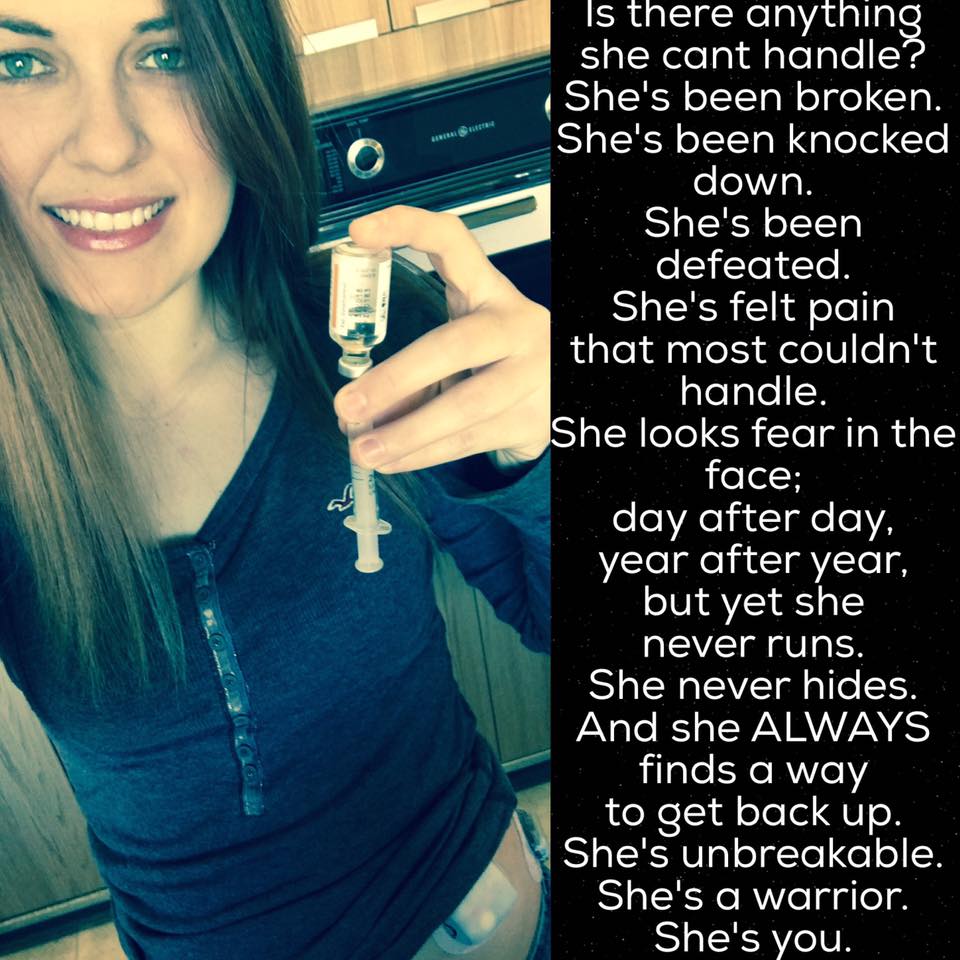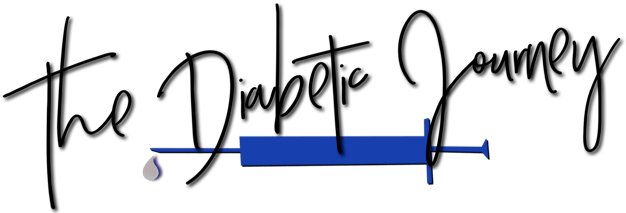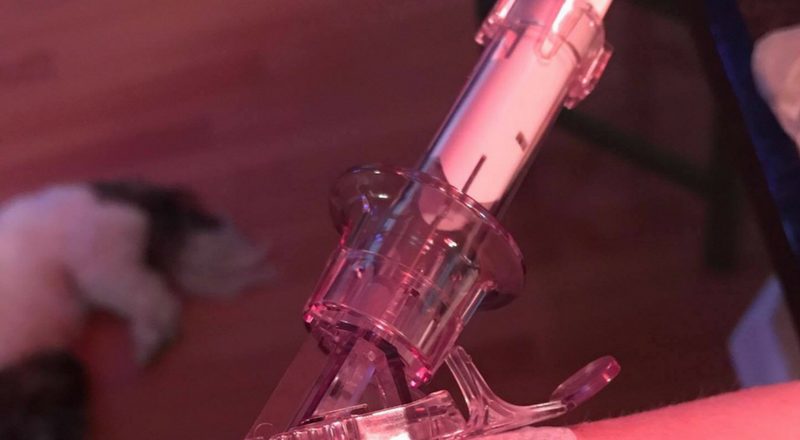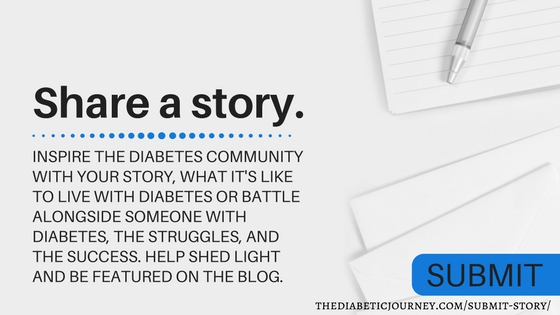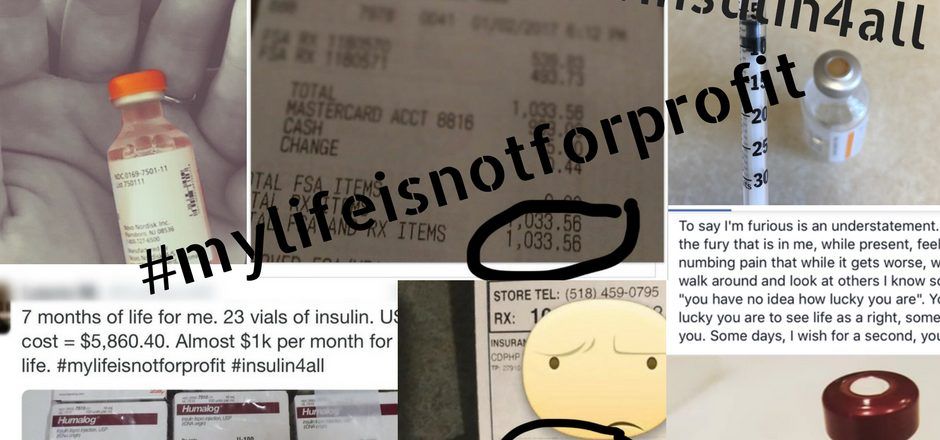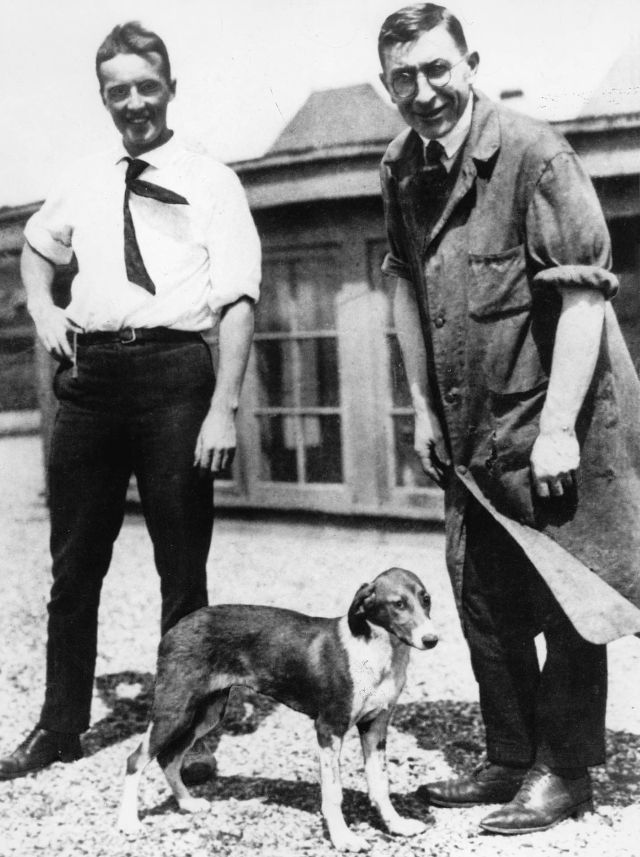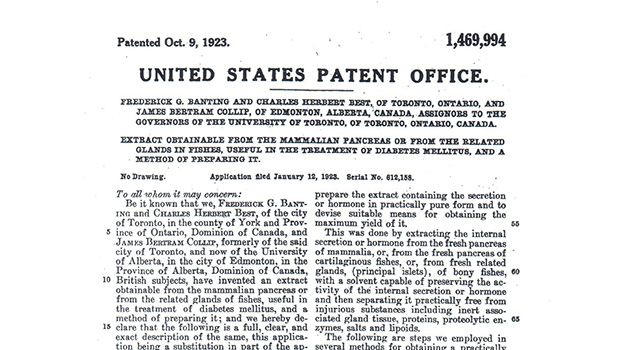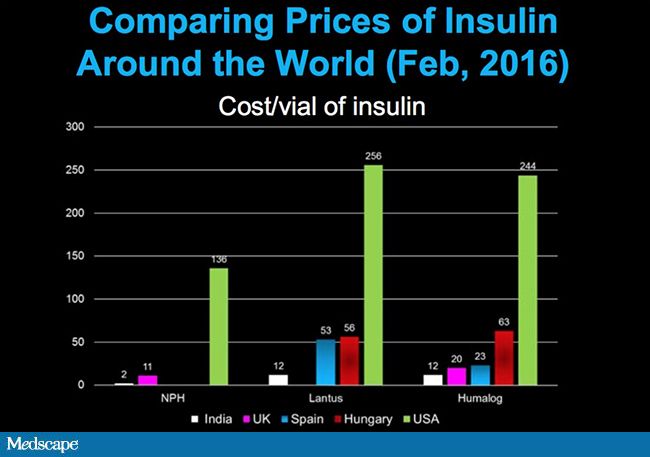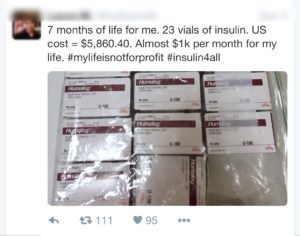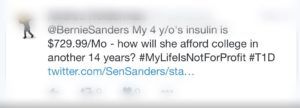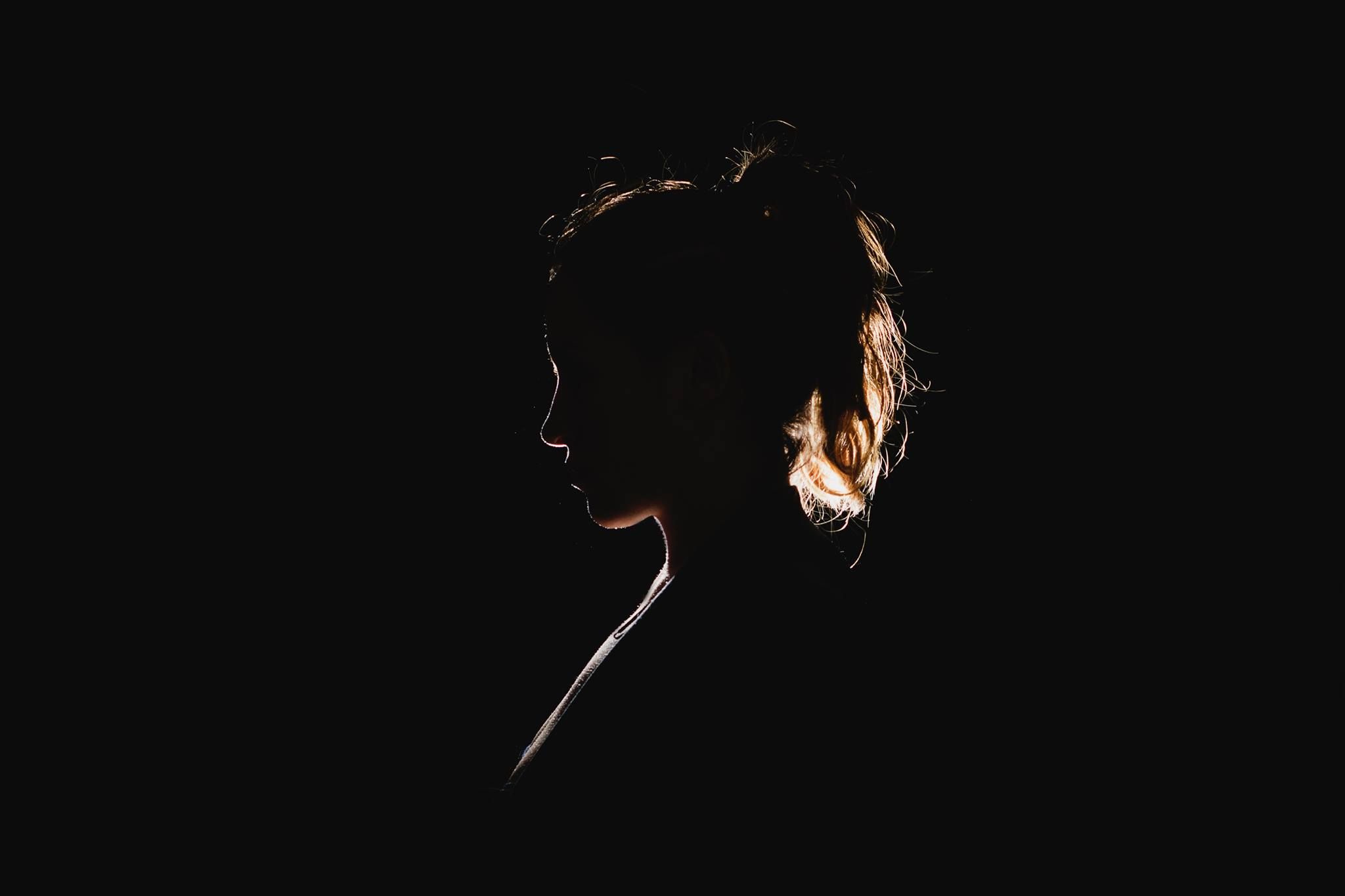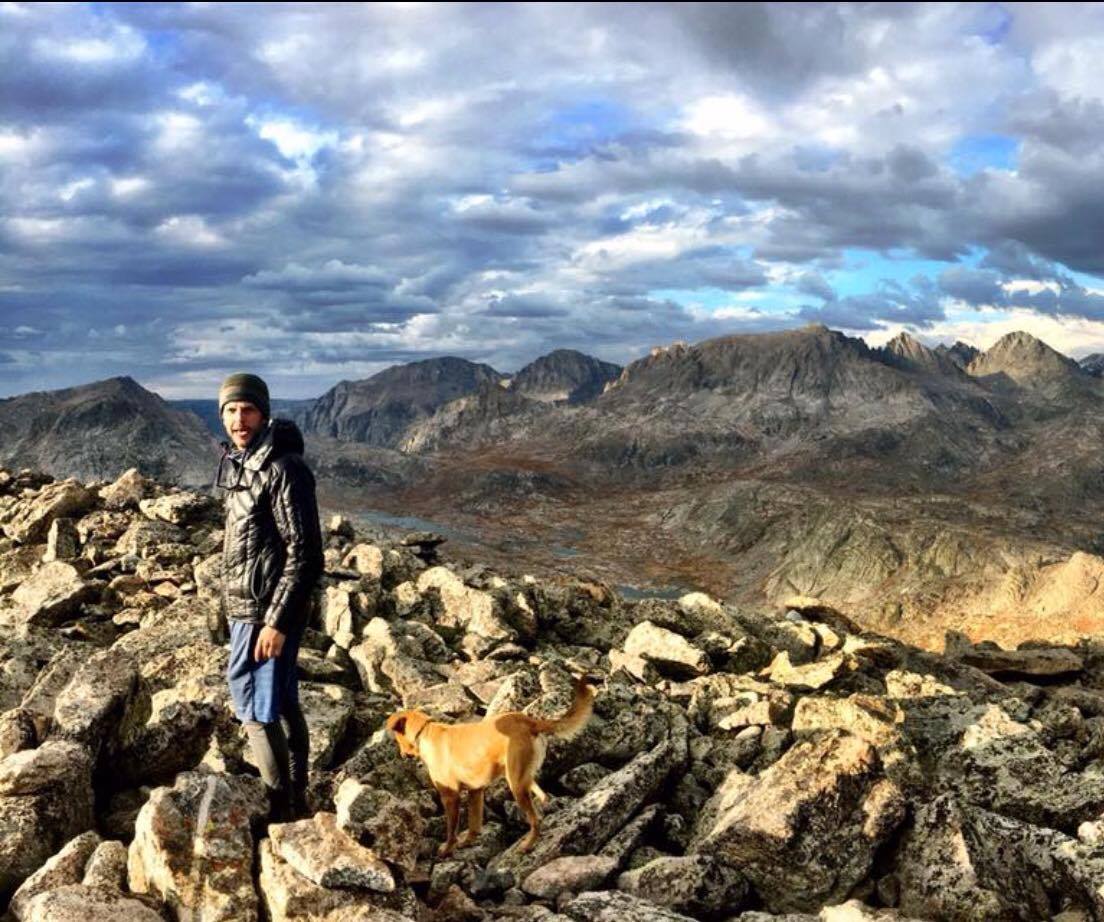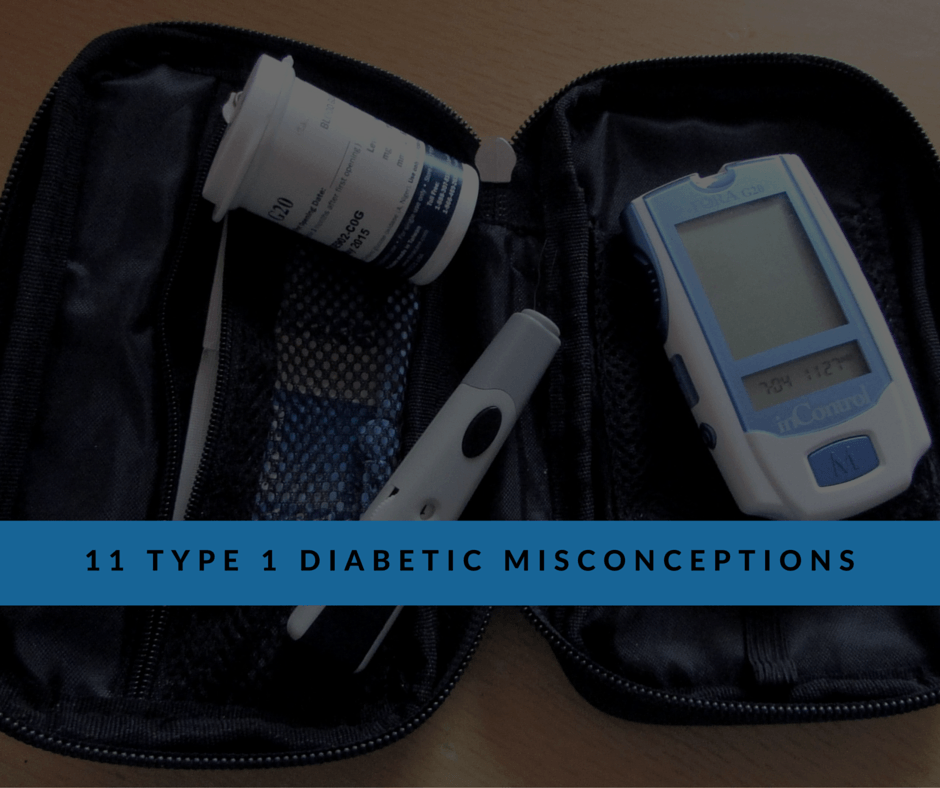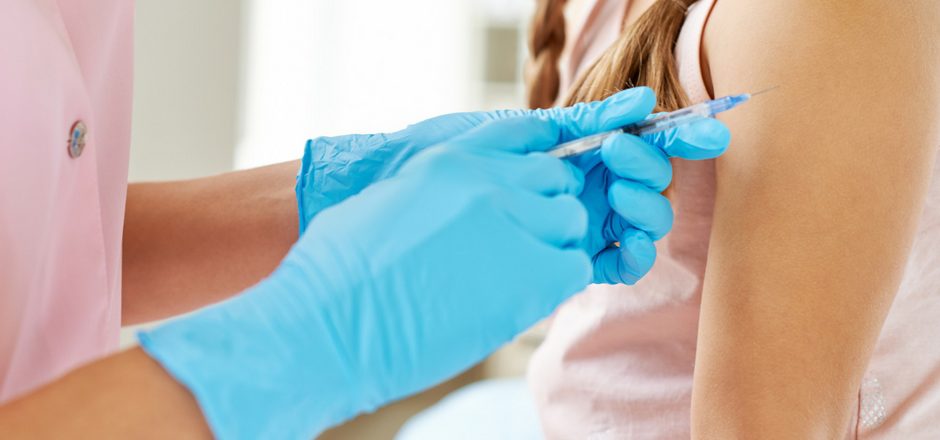Hey warrior —
I just want to say you’re doing amazing! Even on the days you feel weak. The days you feel tired. The days you feel you’ve had enough. Especially on those days because that’s when you’re fighting your hardest. Your vulnerability and even your weaknesses make you strong. Make you powerful, resilient, unstoppable.
You’ve made it thus far. I mean look how far you’ve come!
Whether you’ve been diagnosed for a day—a week—1 year—5 years—20 years, you’re beating all the odds against you heroically. You continue to hold the weight of the world on your shoulders day in and day out with such profound grace and humility.
Don’t let those crazy numbers that show on the blood sugar meter discourage you from your success.
I’m sure you might see at least one “high” or “low” number today. If so, keep going. If not, keep going. Either way, you’re winning because you don’t let diabetes stop you from living.
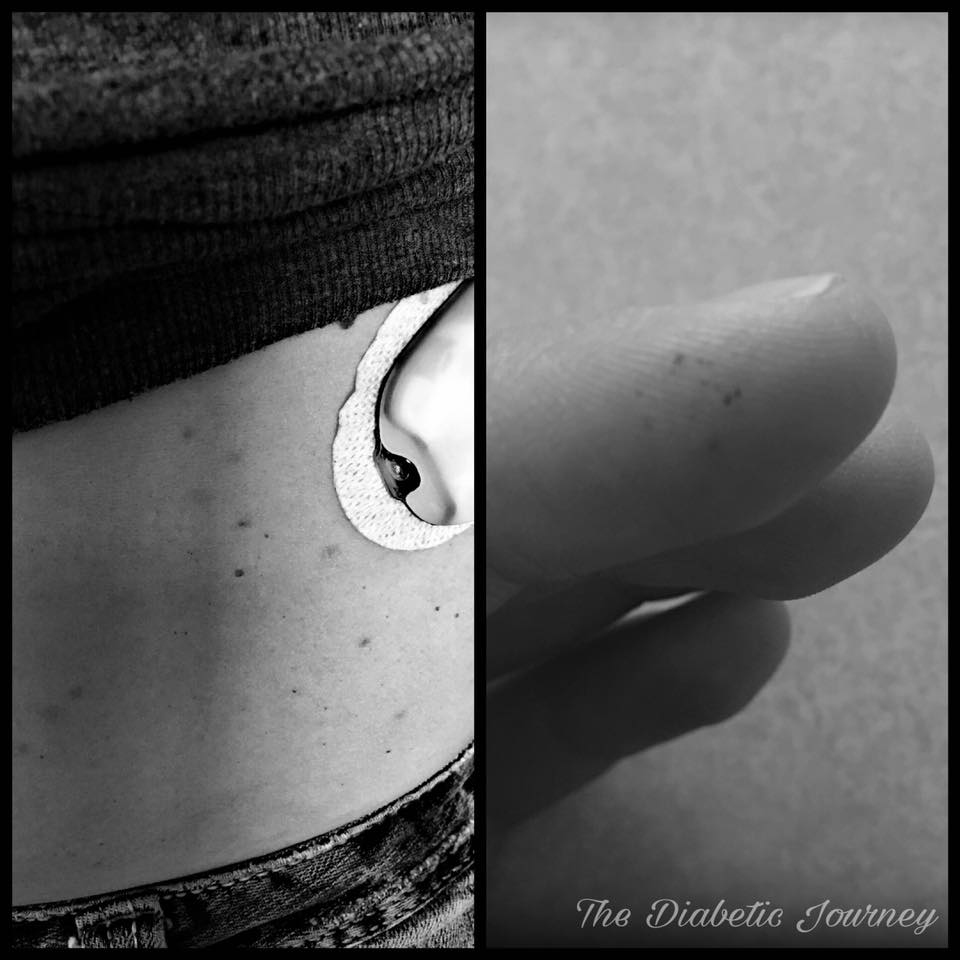
Those needles that create those scars? Well, they tell a story.
A story about how you wake up everyday to fight the same demons that left you so tired from the night before. You should never be ashamed because it just means that you are stronger than diabetes—and you have the proof to show for it.
Next time you go to take your insulin—just know you’re not alone.
Try to not to let the fear overwhelm you and dwindle your spirit. This is an incredibly difficult and daunting challenge. Where you don’t always know what’s ahead. But you were given the strength to face this challenge. Just take a moment and marvel at what an amazing gift it is to just be alive. To be all that you can be. Go show the world how you live beyond this disease because it doesn’t define you.
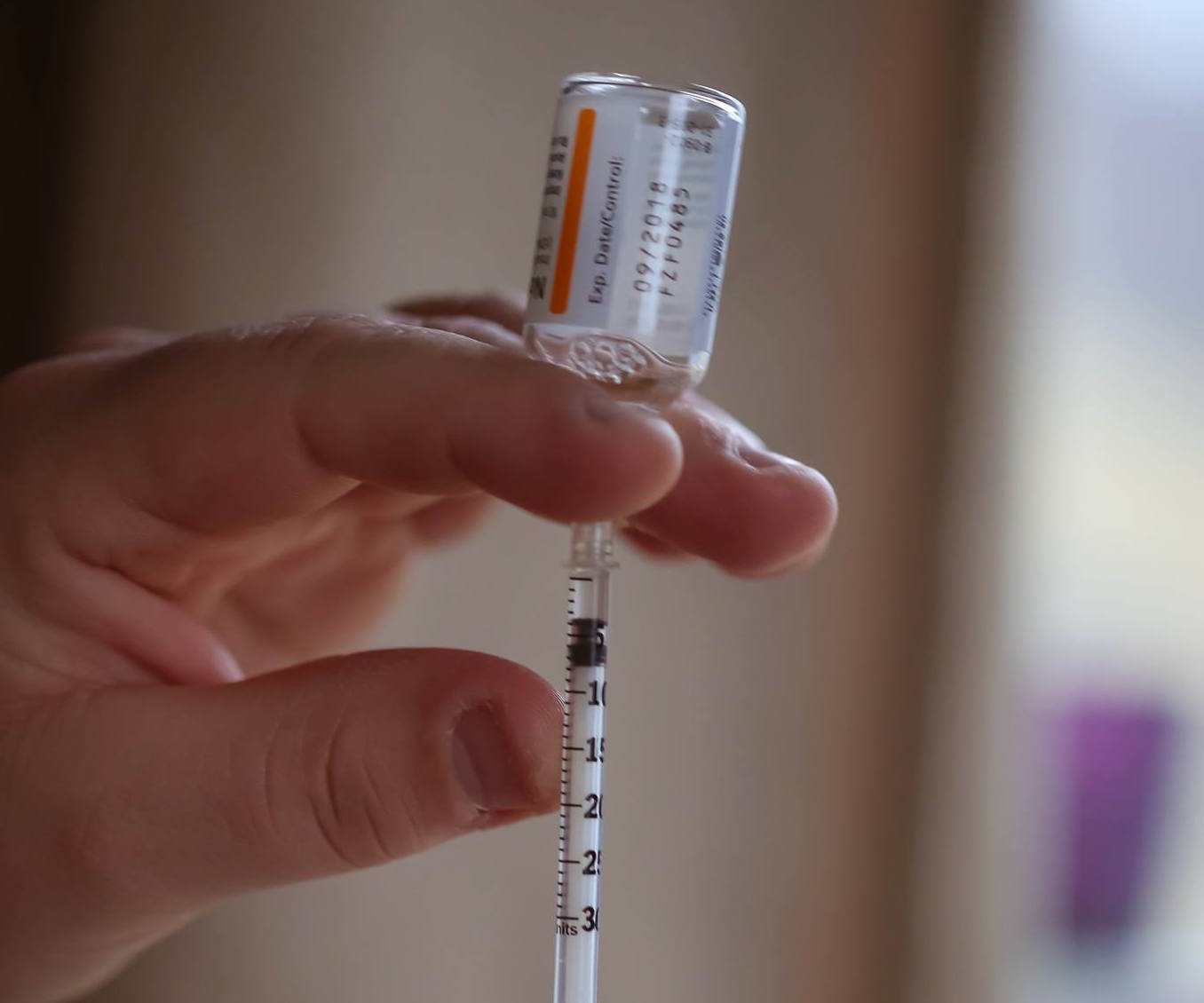
Ask yourself today –
“How you can use this disability to empower others?” How can you turn a negative into a positive?” Be bold enough to raise your voice. Speak for what matters, speak for others who don’t have a voice. Be the light in someone’s darkness. Use this as a higher calling for that there is a purpose in your struggle and all that you go through. Take the reins—because today you got this!
You are amazing.
You are heroic.
You are a warrior.
